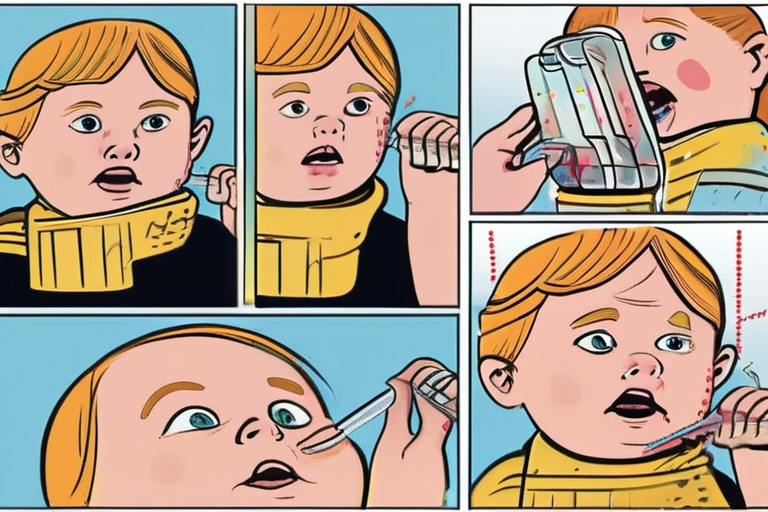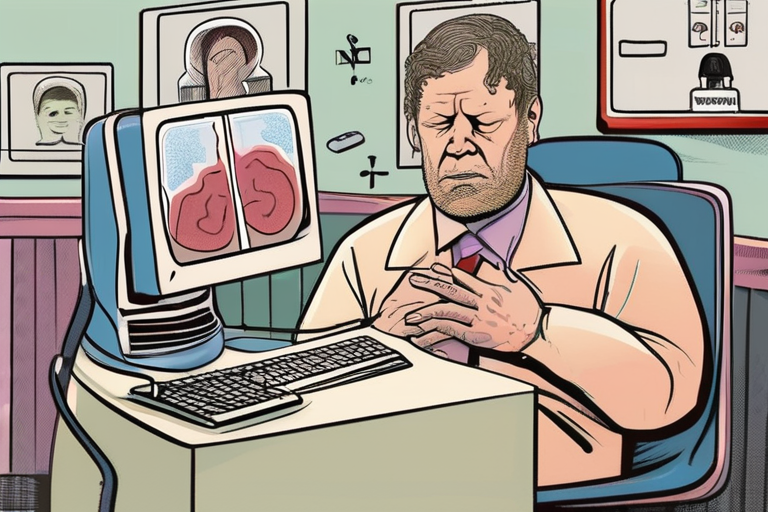Measles Outbreak in South Carolina Sends 150 Unvaccinated Kids into 21-Day Quarantine
A measles outbreak in the northern part of South Carolina has prompted health officials to quarantine at least 153 unvaccinated children for 21 days, as the highly infectious virus continues to spread undetected in communities. The latest case was identified last week in Greenville County, bringing the total number of confirmed cases to eight since September 25.
According to Dr. Linda Bell, Director of the South Carolina Department of Health and Environmental Control (DHEC), "The quarantine is a precautionary measure to prevent further transmission of the virus." She added that the maximum incubation period for measles is 21 days, during which time individuals exposed to the virus may develop symptoms.
The outbreak has been linked to two schools in Spartanburg County: Fairforest Elementary and Global Academy, a public charter school. Health officials have identified at least seven cases among students who attended these schools, prompting the quarantine of unvaccinated children as a precautionary measure.
Measles is a highly contagious viral disease that can spread through respiratory droplets, contact with infected individuals, or contaminated surfaces. According to the World Health Organization (WHO), measles is one of the leading causes of vaccine-preventable deaths worldwide, with an estimated 145,700 deaths in 2019 alone.
The outbreak in South Carolina has raised concerns about vaccination rates and public health infrastructure in the United States. According to the Centers for Disease Control and Prevention (CDC), vaccination rates have been declining in recent years, particularly among children from low-income families.
Dr. William Schaffner, a professor of preventive medicine at Vanderbilt University Medical Center, noted that "the measles outbreak in South Carolina highlights the importance of maintaining high vaccination rates, especially in areas with vulnerable populations." He added that "public health officials must work to address vaccine hesitancy and misinformation, which can have serious consequences for public health."
The current status of the outbreak is being closely monitored by health officials, who are working to identify potential links between cases and prevent further transmission. The DHEC has set up a hotline for parents and guardians to report any suspected cases or concerns.
As the quarantine period comes to an end, health officials will continue to work with schools and communities to ensure that vaccination rates remain high and public health infrastructure is strengthened. In the meantime, residents are urged to take precautions to prevent the spread of the virus, including getting vaccinated if they have not already done so.
Background:
Measles outbreaks have been reported in several countries worldwide in recent years, including the United States, where vaccination rates have been declining. According to the CDC, measles cases increased by 300% between 2018 and 2020, with most cases linked to unvaccinated individuals or those who had not received the recommended two doses of the MMR vaccine.
Additional Perspectives:
The WHO has emphasized the importance of maintaining high vaccination rates to prevent outbreaks. "Measles is a highly contagious disease that can spread quickly in areas with low vaccination rates," said Dr. Tedros Adhanom Ghebreyesus, Director-General of the WHO. "We urge governments and health officials to take immediate action to strengthen public health infrastructure and promote vaccination efforts."
Current Status:
The outbreak in South Carolina continues to be closely monitored by health officials, who are working to identify potential links between cases and prevent further transmission. The DHEC has set up a hotline for parents and guardians to report any suspected cases or concerns.
As the quarantine period comes to an end, health officials will continue to work with schools and communities to ensure that vaccination rates remain high and public health infrastructure is strengthened. In the meantime, residents are urged to take precautions to prevent the spread of the virus, including getting vaccinated if they have not already done so.
*Reporting by Arstechnica.*



 Hoppi
Hoppi

 Hoppi
Hoppi

 Hoppi
Hoppi

 Hoppi
Hoppi

 Hoppi
Hoppi

 Hoppi
Hoppi











